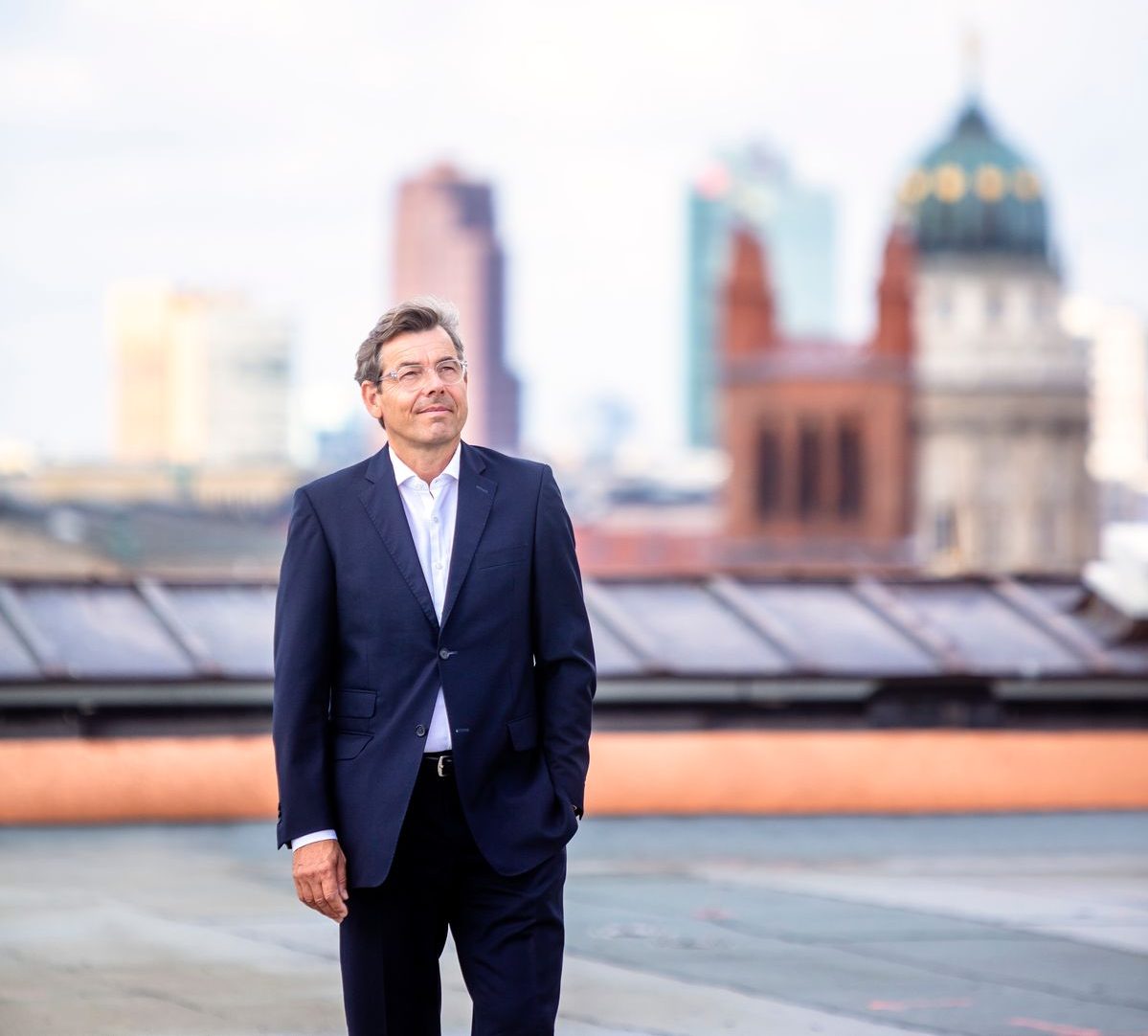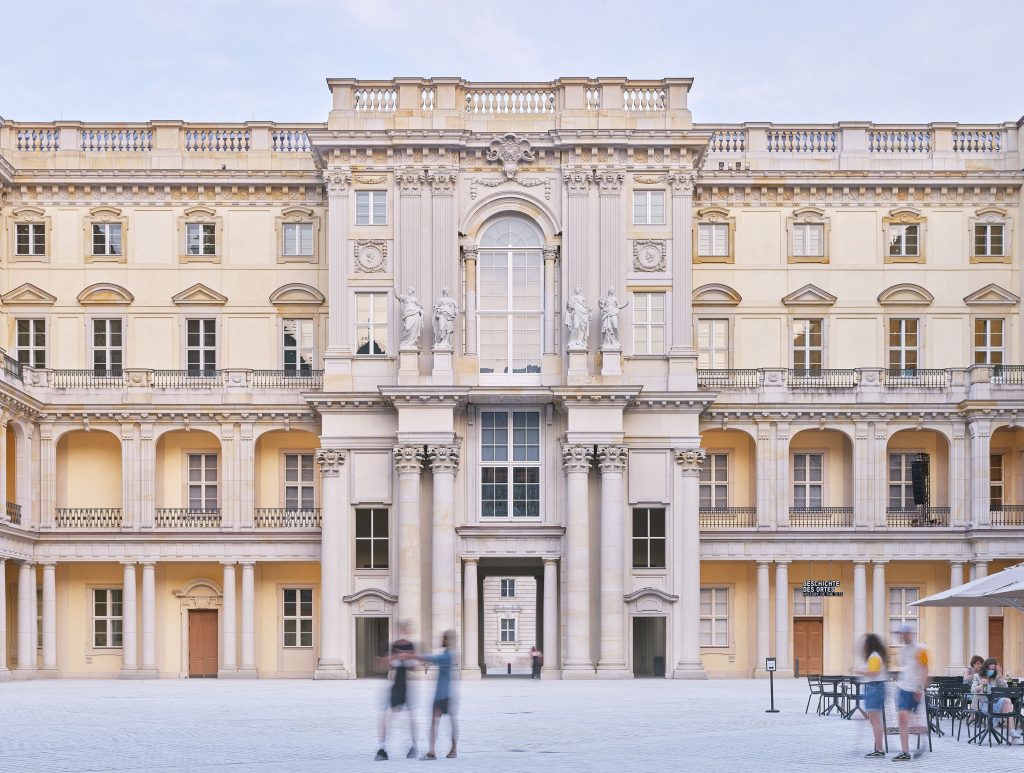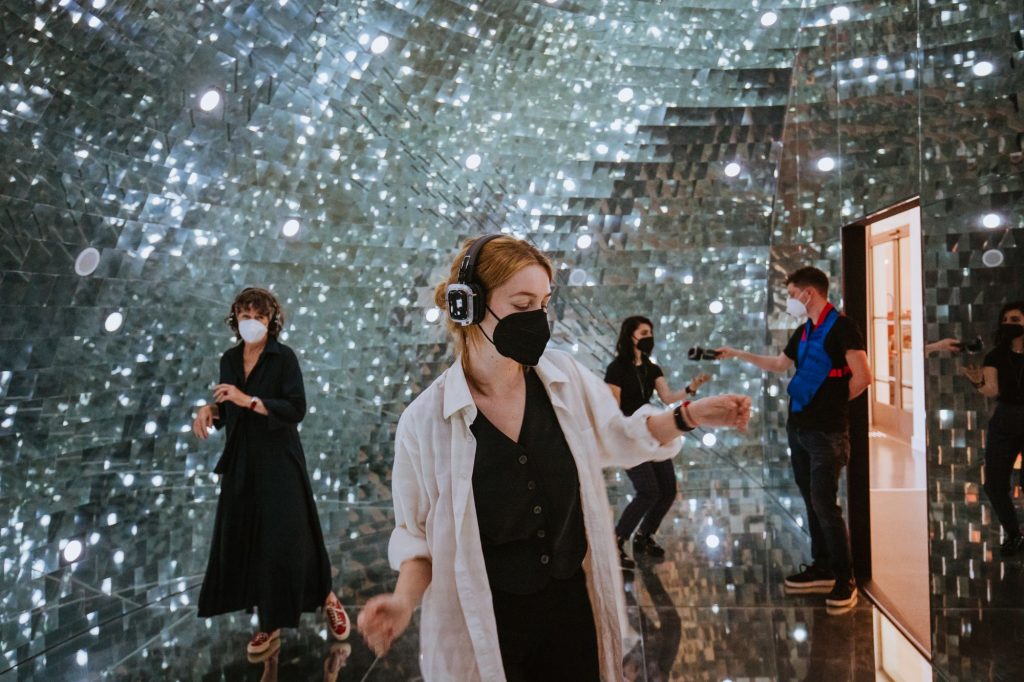Profile | Opening the doors

In the 1970s and 1980s, the Palace of the Republic in Berlin was the beating heart of the German Democratic Republic (GDR). The iconic “people’s palace”, with its distinctive bronze-glass facade, housed not only the country’s parliament, but a cinema, bowling alley, rooftop skating rink and a parade ground that staged the first concert by a western band to take place behind the iron curtain.
The building was closed shortly after reunification in 1990 due to hazardous levels of asbestos – not to mention its connection to the repressive East German state – and controversially demolished in 2008.
In its place has risen Germany’s most significant cultural building in decades, the Humboldt Forum, a vast complex that is now home to a range of public institutions, including two of Berlin’s state museums, a sculpture gallery and a university lab.
Designed by Italian architect Franco Stella, the Humboldt is an intriguing hybrid. Inside, the space is airy and modern and one contemporary side faces onto the River Spree. The rest of its exterior is a reconstruction of the Berlin Palace, a sprawling Prussian royal residence that predated the GDR people’s palace and was torn down in 1950 due to wartime damage.
Humboldt Forum
One of Europe’s most expensive cultural projects, the €680m (£572m) Humboldt Forum welcomed its first visitors in July 2021. Two state museums, the Ethnological Museum and Museum of Asian Art, opened at the forum in September 2021. The site also features two temporary exhibition spaces, a sculpture gallery, two courtyards and a permanent interactive exhibition, Berlin Global, which explores how the city is connected with the world. Further ethnological displays are due to open in the east wing this June.
The building is a partial reconstruction of the Berlin Palace (1443-1950), a former royal residence that was damaged beyond repair by allied bombing in the second world war. The outer facades and dome of the palace were rebuilt to honour the artistic achievement of Andreas Schlüter (1659-1714), a baroque master builder.
Funded entirely through donations, the reconstruction was an ambitious undertaking involving sculptors, plaster moulders and stucco artists, who created more than 2,300 figures and about 23,000 sandstone elements.
The Humboldt Forum is named after the 18th-century Prussian scholars Wilhelm and Alexander Humboldt, who established a new model of holistic education and founded the Humboldt University of Berlin. The university now runs the Humboldt Lab at the forum, a workshop of ideas where new research comes into dialogue with the public.
The Humboldt Forum is a microcosm of Berlin’s complex history but its own genesis has also been fraught. Faced with the daunting task of placating its critics is Hartmut Dorgerloh, who has been its general director since 2018.
With a background in art history and monument conservation, Dorgerloh was witness to the “quite spectacular division” that arose when the German parliament voted to partially reconstruct the Berlin Palace in 2002. The GDR building still held a lot of nostalgia for East Germans, who did not want to see it written out of history; meanwhile, some felt the baroque palace was a redundant symbol of Prussian imperialism.
Dorgerloh admits he was dubious about rebuilding. “I am very sceptical about the phenomenon of reconstruction,” he says. “I think what’s gone is gone forever.”
He was brought into the orbit of the Humboldt Forum – whose development was overseen in part by the former British Museum director Neil MacGregor – by a proposal he put forward to weave its tangled narratives together by creating a museum of the site’s history in the new building.
At the time he was working as general director of the Prussian Palaces and Gardens Foundation Berlin-Brandenburg. He didn’t hear back about the proposal until a few years later, when MacGregor got in touch.
“He asked, ‘What happened to your idea? Let me read it again’,” – and it wasn’t long before Dorgerloh was on board. “I thought what a great opportunity to work for such a hybrid structure, bringing different perspectives into one place.”

Building on the past
Dorgerloh’s interest in historic buildings began early. Born in 1962, he grew up in Potsdam in former East Germany and took a summer job as a security guard for the state palaces and gardens when he was just 14. That job evolved into becoming a tour guide, before he went to study art history and archaeology at university. He then started as curator at the GDR’s Institute for Monument Preservation.
“Many historic buildings were in very bad shape in East Germany,” he says. “I was interested in why some were maintained and some were not. I wanted to learn how to restore them and what those buildings could tell us.”
Dorgerloh was among the crowds in 1989 when the Berlin Wall came down, ushering in a period of huge social change. Life had not always been easy in the GDR; the son of a Lutheran pastor in a state that frowned on religion, he often felt something of an outsider. “It was like living in opposition,” he says. “Some doors were closed to me.”
But Dorgerloh credits this upbringing for enabling him to think critically and see things from all sides. “I was underprivileged then but now I believe I was over-privileged. I learnt from my early years that there was always a different story from what we were being told at school.”

Dorgerloh’s vision for a museum of the site’s history evolved into a series of 35 “flashbacks” dotted around the venue, exploring different time layers in the space. Objects from the Palace of the Republic are on view, and there are even fragments of its reflective bronzed glass windows on sale in the gift shop, while in the basement visitors can see the archaeological cellar, the only surviving part of the lost baroque palace.
Far from being a reconstruction, the Humboldt Forum is hoping to break the mould as a non-traditional cultural space – a place of discourse and exchange that celebrates the city’s multiculturalism.
“It’s not a hidden place, it’s for everyone,” says Dorgerloh. “It needs to mirror the social terrain of Germany, which is growing much more diverse.”
A significant focus for the institution is decolonial practice. Germany did not start thinking more critically about its imperial past until quite recently, says Dorgerloh, in part because the horrors of the Nazi era and the country’s cold war partition overshadowed everything else.
But the issue grew in urgency as the project developed. By the time the forum opened last June, difficult questions were being asked about collections that were acquired during Germany’s colonial exploits in Africa, Asia and Oceania in the late-19th and early-20th centuries.
Most of these are held in the Ethnological Museum and the Museum of Asian Art, which occupy the west wing of the building. Provenance research and building new relationships with communities of origin are now a central part of the forum’s work.
“It’s something we can only do in co-curatorship,” says Dorgerloh, although this is a continuous learning process. “It’s like leaving your own house and going to live with a patchwork family in a new apartment – as an institution it’s very different from what we’ve learnt before.”
But this commitment to change also had to be backed up by concrete action. In a landmark move last year, the Ethnological Museum announced that it would unconditionally repatriate almost all of its Benin bronze holdings to Nigeria, where they were looted by British forces in 1897. The decision has had repercussions across Europe’s museum community.
I’m sceptical about ideological dogma. I think there’s a diversity of questions and a variety of answers.
Dorgerloh says he is an active yet inactive partner in the Benin bronze talks. The Ethnological Museum is overseen by a federal body and not run directly by the Humboldt Forum, but “of course you can discuss what your partner brings with them when they move in,” he says.
“We were clear that it was impossible that the Benin bronzes would be displayed as they would have been five years ago. My role was to say you have to find a solution and hurry up in the debate because the Humboldt Forum has a schedule to keep.”
Dorgerloh believes his youth in the GDR helped him look beyond this impasse. “I’ve seen how fast a social and political system can collapse – I’m sceptical about ideological dogma,” he says. “I think there’s a diversity of questions and a variety of answers.”
Dorgerloh feels that German museums are ready for more widespread restitution. “It’s now up to us – and perhaps the Humboldt Forum can tell the story of what happened.”
But has the forum managed to overcome its doubters yet? “We’ve had many critiques, much scepticism,” he says. “But a lot of surprise from people too.”
Hartmut Dorgerloh
Born in the city of Potsdam in the former German Democratic Republic (GDR), Hartmut Dorgerloh studied art history and classical archaeology at the Humboldt University in Berlin. From 1987 to 1990 he was a curator at the Institute for Monument Preservation of the GDR, where he dealt mainly with the buildings on Berlin’s Museum Island.
After Germany’s reunification, Dorgerloh moved to the Ministry of Science, Research and Culture in the state of Brandenburg, where he led the department for monument protection.
In 1999 he became the founding commissioner for the House of Brandenburg-Prussian History and from 2002 to 2018 he was general director of the Prussian Palaces and Gardens Foundation Berlin-Brandenburg.Dorgerloh was appointed as general director of the Humboldt Forum in 2018.
